Ask yourself: What matters most to me in my work and personal life? When you shift your focus, you shift your impact. Put a spotlight on what matters in your life and list the next steps toward making positive change happen in those areas.

If you apply even one of the 7 Habits today, you can see immediate results; but its a lifetime adventurea lifetime promise. Stephen R. Covey
Ask yourself: Have I focused on quick fixes at the expense of my character? Like the top of a tree, our personality is what people see first.

People who live by the character ethic have strong roots, deep roots.

People who live by the character ethic have strong roots, deep roots.
They withstand the stresses of life, and they keep growing and progressing. Stephen R. Covey
Ask yourself: How accurate are my paradigms? Paradigms are the way we see, understand, and interpret the worldour mental map.

If you want to make minor changes in your life, work on your behavior. But if you want to make significant, quantum breakthroughs, work on your paradigms. Stephen R.
Covey
Ask yourself: How could I respond proactively the next time I face a highly charged situation? When people are reactive, they allow outside influences to control their response.
When people are proactive, they pause to allow themselves to choose their response based on principles and desired results.

Between what happens to us and our response is a space, and the key to our growth and happiness is how we use that space. Stephen R. Covey
Ask yourself: Who has been a Transition Person for me? What influence did they have on my life? A Transition Person breaks unhealthy, abusive, or ineffective behavior and passes on habits that strengthen and build others. Stephen R. Stephen R.
Covey
Ask yourself: Are my words making me a victim? Reactive language is a sure sign that you see yourself as a victim of circumstances, instead of as a proactive, self-reliant person.

A serious problem with reactive language is that it becomes a self-fulfilling prophecy. Peoplefeel victimized and out of control, not in charge of their life or their destiny. They blame outside forcesother people, circumstances, even the starsfor their own situation. Stephen R. Covey
Ask yourself: How differently do I feel about myself when I use proactive language? Our language is a real indicator of the degree to which we see ourselves as proactive people.
Using proactive language helps us feel more capable and empowers us to act.  I am not the product of my circumstances. I am a product of my decisions. Stephen R. Covey
I am not the product of my circumstances. I am a product of my decisions. Stephen R. Covey
Ask yourself: How much time and energy do I waste on things I cant control? Your Circle of Concern includes things you worry about but cant control.

Be a light, not a judge.

Be a light, not a judge.
Be a model, not a critic. Stephen R. Covey
Ask yourself: Is my Circle of Influence growing or shrinking? Your Circle of Influence includes those things you can affect directly. When you focus on it, you expand your knowledge and experience. As a result, your Circle of Influence grows.

Proactive people focus their efforts on the Circle of Influence.
Their energy is positive, enlarging, and magnifying. Stephen R. Covey
Ask yourself: How are my outcomes different when I begin with a clear end in mind? All things are created twice: a mental creation and a physical creation. Before you act, start with a clear idea of what you want to achieve.

Its incredibly easy to work harder and harder at climbing the ladder of success, only to discover that its leaning against the wrong wall. Stephen R.
Covey
Ask yourself: What legacy do I want to leave? Being effective means taking the time to define the legacy you want to leave regarding your most important relationships and responsibilities.


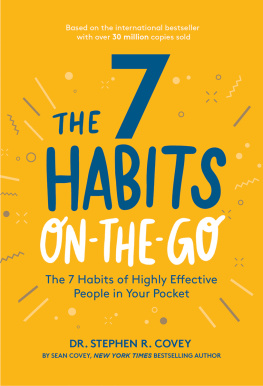
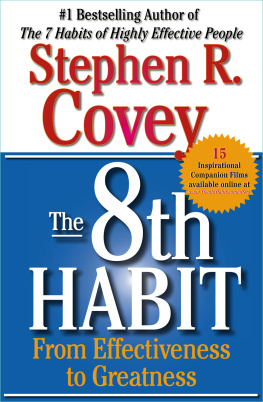
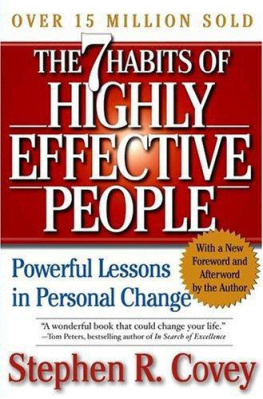
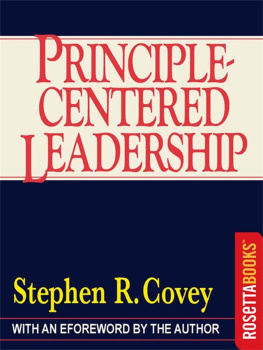
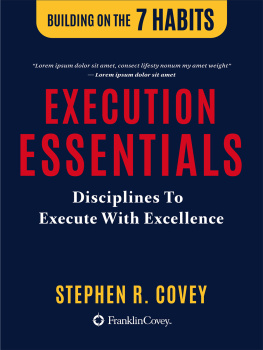
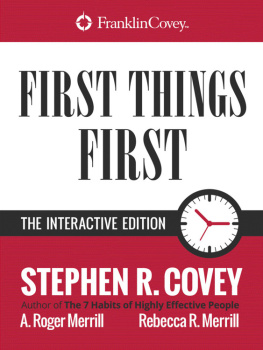
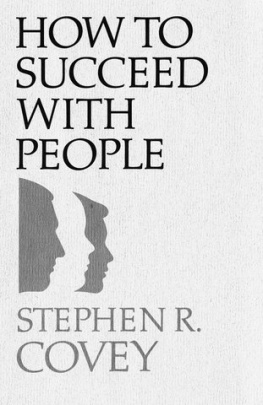

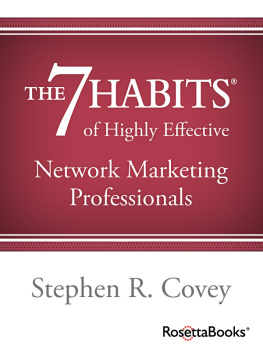
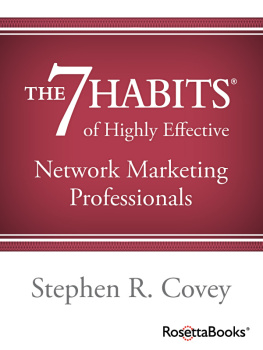
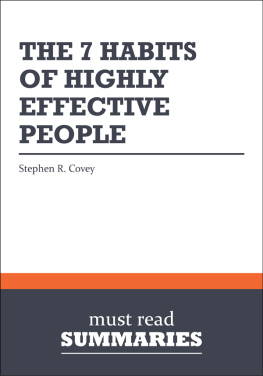
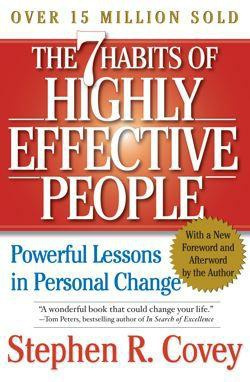
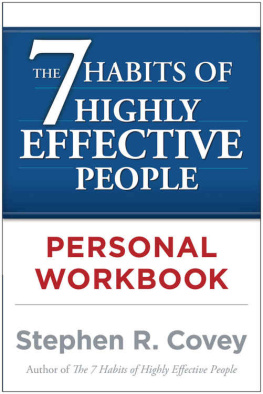
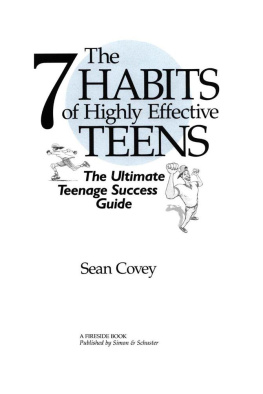



 If you apply even one of the 7 Habits today, you can see immediate results; but its a lifetime adventurea lifetime promise. Stephen R. Covey
If you apply even one of the 7 Habits today, you can see immediate results; but its a lifetime adventurea lifetime promise. Stephen R. Covey 


 Between what happens to us and our response is a space, and the key to our growth and happiness is how we use that space. Stephen R. Covey
Between what happens to us and our response is a space, and the key to our growth and happiness is how we use that space. Stephen R. Covey 






 Its incredibly easy to work harder and harder at climbing the ladder of success, only to discover that its leaning against the wrong wall. Stephen R.
Its incredibly easy to work harder and harder at climbing the ladder of success, only to discover that its leaning against the wrong wall. Stephen R. 